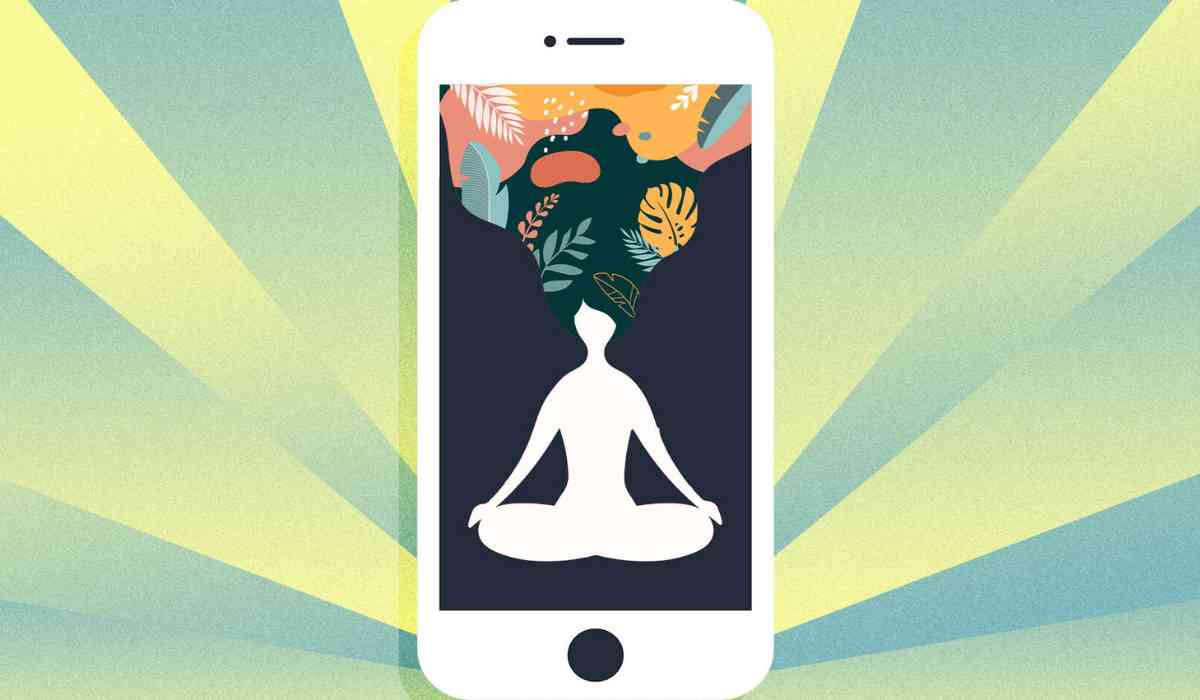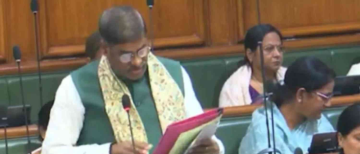Mental health is finally getting the attention it deserves in India and technology is leading the charge.
In India today, mental health is no longer a topic spoken about in hushed tones. From student campuses to corporate boardrooms, conversations around emotional well-being have found a place. But access to quality care is still uneven limited resources, societal stigma, and logistical hurdles often deter individuals from seeking help. As mental health concerns continue to rise, a new wave of digital innovation is stepping in to bridge the gap.
Mental health apps, once seen as fringe tools, have now become mainstream platforms offering accessible, affordable, and often anonymous care to millions of Indians. But while their convenience is undeniable, questions remain: Can these apps replace traditional therapy? Are they safe? And how do users know which ones to trust?
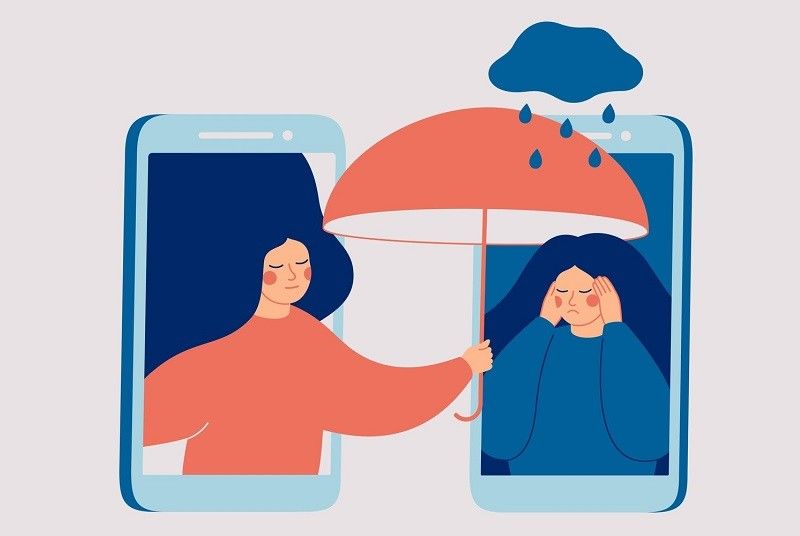
Why Mental Health Apps Are Gaining Popularity
In today’s fast-paced environment, apps provide:
-
Accessibility: Support is always available — no appointments required.
-
Anonymity: Users can explore emotional support without fear of judgment.
-
Affordability: Many apps are free or cost far less than traditional therapy.
-
Diverse Tools: Offer everything from CBT to mindfulness practices.
They serve as a first line of defense, especially where traditional services are overwhelmed or unavailable. Moreover, they promote self-management, encourage patient empowerment, and help users track their progress over time all essential elements in sustaining long-term mental health.
A Growing Need for Mental Health Support in India
India is home to over 1.4 billion people and yet, mental health services remain woefully understaffed and underfunded. According to a recent estimate, nearly 6 to 7 percent of the Indian population is affected by mental health challenges, ranging from anxiety and depression to more severe conditions. Despite the high need, professional help remains out of reach for many due to:
-
Lack of mental health professionals, especially in rural areas
-
Financial constraints associated with long-term therapy
-
Deep-rooted social stigma surrounding mental illness
-
Limited awareness and education about mental health
The COVID-19 pandemic acted as a tipping point, intensifying mental health issues while simultaneously normalizing discussions around them. It also fueled a sharp rise in the adoption of mental health apps that offered support, guidance, and in some cases, therapeutic interventions all from the safety and privacy of one’s smartphone.
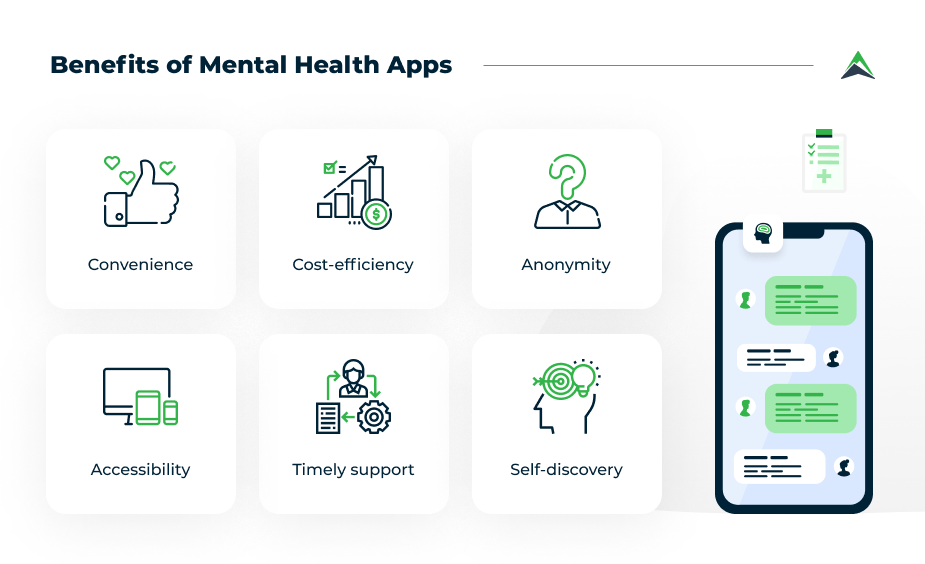
Top Indian Mental Health Apps Leading the Change
1. YourDOST
Founding Year- 2014
Founder- Richa Singh, Puneet Manuja, Prakhar Verma, Satyajeet Nandekar and Paula Mariwala
YourDOST connects users with over 1,000 wellness experts through anonymous chats, video sessions, and personal counseling. The platform has hosted over 25 lakh sessions and focuses on creating a safe, stigma-free environment for people to seek help.
Highlights:
-
One-on-one therapy
-
Webinars & workshops
-
Anonymous access to professionals
Best for: Individuals seeking personalised guidance from certified therapists.
2. Evolve
Founding Year- 2020
Founder- Anshul Kamath and Rohan Arora
Born from founder Anshul Kamath’s personal health journey, Evolve offers interactive and joyful content focused on emotional resilience, better sleep, stress reduction, and productivity. With over 100,000 global users, the app also features contextual mental health support for the LGBTQ+ community.
Highlights:
-
User-friendly mental wellness journeys
-
Specialized content for marginalized groups
-
Real-time emotional support
Best for: Users looking for holistic, inclusive, and daily mental health support.
3. Wysa
Founding Year- 2015
Founder- Jo Aggarwal and Ramakant Vempati
This AI-powered chatbot, shaped like a friendly penguin, uses evidence-based cognitive behavioral techniques to help users work through their feelings. Wysa has proven effective, with some users reporting a 40% drop in depression symptoms.
Highlights:
-
AI chatbot for guided conversations
-
Mood tracking & CBT tools
-
Available in 65+ countries
Best for: Anyone needing 24/7 support and guided self-help without talking to a human.
4. Amaha (formerly InnerHour)
Founding Year- 2016
Founder- Dr. Amit Malik and Neha Kirpal
Amaha offers over 600 self-care tools, a mood tracker, a journaling feature, and access to 60+ mental health professionals. The platform also connects users to a 10,000+ strong support community and offers resources for caregivers.
Highlights:
-
Personalised mental health plans
-
In-app chatbot “Allie”
-
Community forums and therapist access
Best for: Users seeking an all-in-one toolkit for therapy and self-care.
5. manas
Founding Year- April 13, 2021
Founder- The Manas Foundation, which predates the MANAS app was founded in 2000 by Ms. Monica Kumar, Dr. Amiya Banerjee, and Ms. Joyshree Mukherjee
Backed by government institutions like NIMHANS and AFMC, this app is built on life skills and psychological processes. It integrates various national wellness efforts and offers age-appropriate interventions.
Highlights:
-
Government-endorsed platform
-
Content for all age groups
-
Mindfulness and sleep trackers
Best for: Those looking for trusted, research-based mental health content.
6. BetterLYF
Founding Year- 2016
Founder- Vikram Beri and Varun Handa
A lesser-known but impactful platform, BetterLYF focuses on emotional health and resilience. Users can engage in anonymous chats with counselors, explore community resources, and track their progress.
It’s particularly useful for individuals navigating personal life stressors such as breakups, work stress, or self-doubt.
Honourable Mentions:
-
Headspace: Popular global app for mindfulness and guided meditations, widely used in India.
-
Calm: Known for sleep stories, relaxing sounds, and breathing exercises.
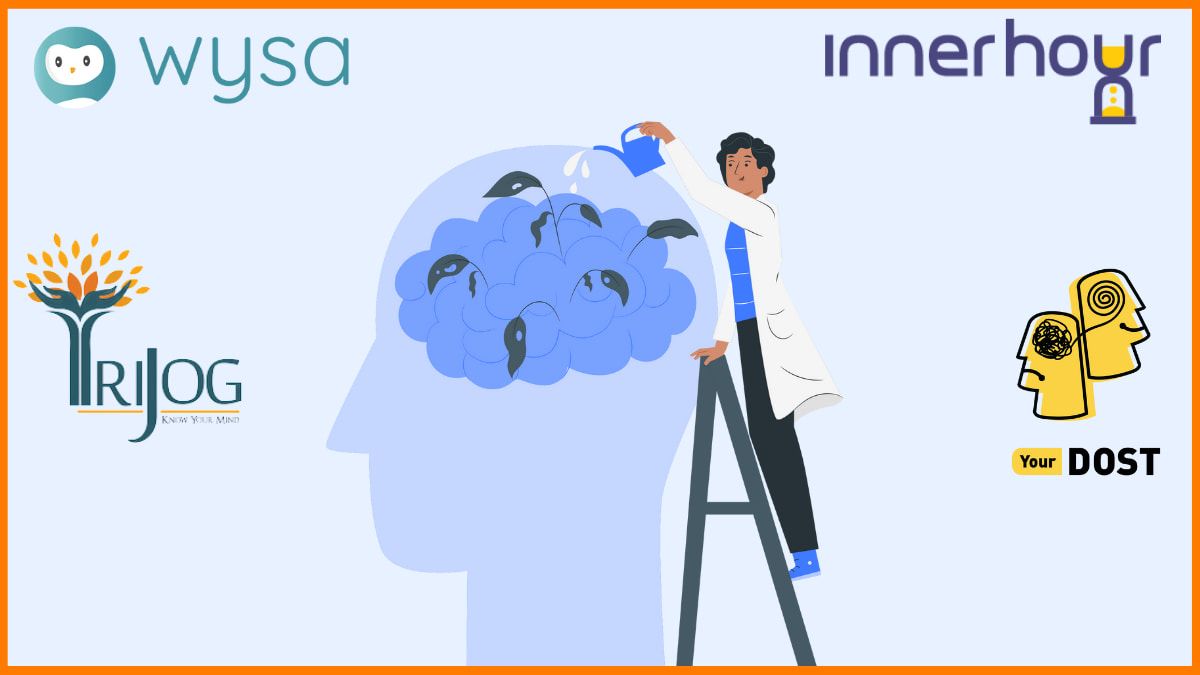
How These Apps Are Changing the Mental Health Landscape
-
Easing Pressure on Healthcare Systems
Apps provide early intervention tools, reducing the burden on overworked public mental health services. -
Enhancing Clinical Efficiency
With built-in symptom trackers and pre-assessments, apps streamline patient-provider interactions. -
Cost-Effective Support
Serving thousands of users at once, apps offer scalable, affordable care. -
Empowering Self-Help
By putting tools in users’ hands, apps promote self-awareness, accountability, and long-term habits.
Therapeutic Techniques Offered
|
Therapy Type |
Description |
|---|---|
|
Cognitive Behavioral Therapy (CBT) |
Targets negative thought patterns and behaviors |
|
Mindfulness-Based Therapy |
Focuses on awareness and present-moment acceptance |
|
Dialectical Behavior Therapy (DBT) |
Combines emotional regulation with mindfulness |
|
Acceptance and Commitment Therapy (ACT) |
Helps individuals accept thoughts and commit to positive change |
But Are They Enough?
While their benefits are clear, mental health apps are not without flaws:
-
Oversimplification Risk: Apps can’t replace a trained professional’s nuanced care. Users might treat apps as a one-size-fits-all solution.
-
Quality Concerns: Not all apps are developed with clinical input or evidence-based practices.
-
Privacy and Safety Issues: Confidentiality and user data protection are crucial and sometimes lacking.
-
Not a Substitute for Professional Care: Apps are not equipped to handle acute mental health crises or suicidal ideation.
Bottom line: Apps should complement, not replace, in-person or teletherapy care.
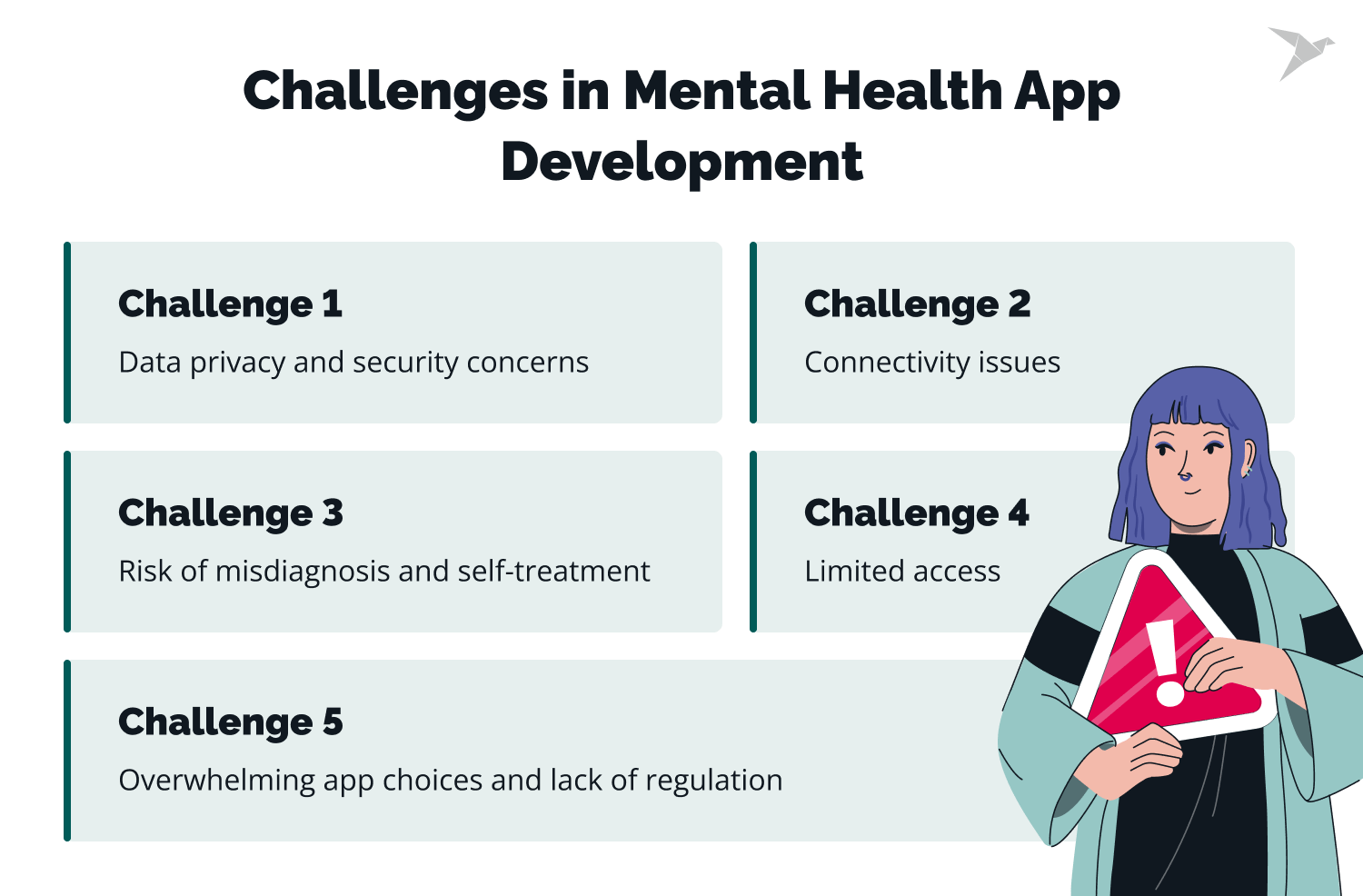
How to Choose the Right Mental Health App
Before downloading an app, consider the following:
|
Criteria |
What to Look For |
|---|---|
|
User Reviews |
Check ratings and testimonials for real-world insights. |
|
Clinical Backing |
Look for apps developed with or endorsed by mental health professionals. |
|
Relevant Features |
Make sure the app offers what you need (e.g., CBT, meditations, journaling). |
|
Affordability |
Compare subscription models or free trials. |
|
Data Privacy |
Ensure it complies with data protection regulations. |
What’s Next for Digital Mental Health?
The future is promising, as technology continues to evolve:
-
AI Personalization: Advanced AI will offer more tailored emotional support.
-
Wearable Integration: Smartwatches and trackers may feed real-time data into mental health dashboards.
-
Hybrid Therapy Models: Digital tools will increasingly work alongside human therapists.
-
Stronger Regulations: The app ecosystem is moving toward better quality control and privacy standards.
A Balanced Way Forward
India’s mental health crisis is real, but so is its digital transformation. Therapy apps are not magic bullets, but they are important tools. They break down stigma, encourage early intervention, and put mental wellness into the hands of ordinary citizens.
Whether it’s anonymous chats on BetterLYF, CBT-based chats with Wysa, or holistic support via Amaha, these platforms are breaking stigma, expanding access, and normalising the mental health conversation.
But the key is balance. These apps work best not as replacements, but as part of a broader care ecosystem, alongside therapy, peer support, and clinical intervention when necessary.
For millions of Indians, mental health care is no longer a taboo topic or a distant luxury, it’s just a tap away.
With inputs from agencies
Image Source: Multiple agencies
© Copyright 2025. All Rights Reserved Powered by Vygr Media.

